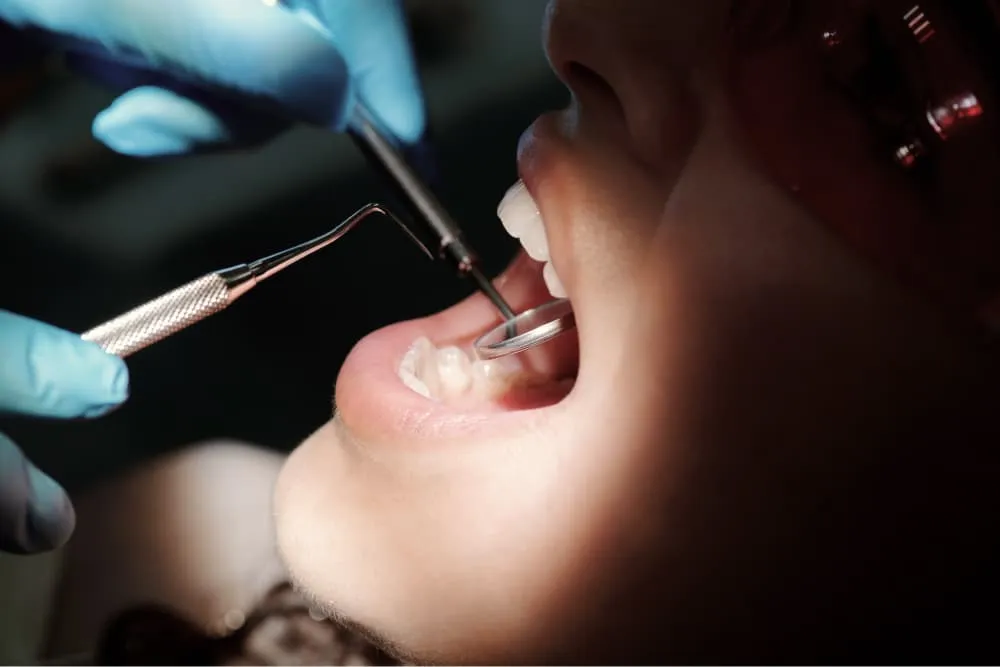Can bulimia cause high cholesterol?
Bulimia nervosa (BN) causes many short-term physical effects. However, long-ranging health concerns are also found, and this begs the question, can bulimia cause high cholesterol?
Tabs content 1
Tabs content 2
Bulimia nervosa (BN) causes many short-term physical effects. However, long-ranging health concerns are also found, and this begs the question, can bulimia cause high cholesterol?

Multiple studies have found an increased incidence of high serum cholesterol in individuals with a current or previous diagnosis of bulimia nervosa (BN). (1) While further research is needed to understand the relationship between bulimia and high cholesterol, it’s been suggested that higher levels result from frequent binge eating episodes affecting the way the body metabolizes fat.
High cholesterol levels can be associated with several serious health concerns, including high blood pressure, heart disease, and other cardiovascular problems. Therefore, those diagnosed with bulimia may benefit from closer management of their cholesterol levels and cardiovascular health during recovery.
Cholesterol is a waxy substance in your blood that is essential in small amounts to build healthy cells. (2) It is not inherently “bad.” In fact, it is also used to make vitamins and hormones in the body. (3)
Cholesterol comes from two sources—some is manufactured in your liver, which typically can make all of the cholesterol you need. Other cholesterol comes from animal-based foods like meats, poultry, and dairy.
Foods that are high in saturated and trans-unsaturated fats raise serum cholesterol in two ways:
Because of this twofold effect, cholesterol levels are important to monitor over time.
There is a fairly well-established link between anorexia nervosa and high cholesterol, a result of a combination of genetics, hormone action, and potentially increased absorption by gut microbes. (4) Individuals with other eating disorders, including bulimia nervosa, may also experience high cholesterol levels.
While further studies are needed, research has indicated that 19 to 48% of those with bulimia have high cholesterol, as well as a significantly increased risk of:(5)
Further research has shown that those with bulimia have significantly higher serum levels of cholesterol and triglycerides compared to healthy, age-matched individuals, which co-occurring psychiatric disorders could not explain. It also appears that cholesterol metabolism and levels positively correlate to a person’s drive for thinness (including restriction of food intake) and impulse regulation, common characteristics of bulimia nervosa. (6)
It’s been hypothesized that these increased cholesterol levels result from the binge-purge cycle, which is a key characteristic of bulimia. When you binge eat, you consume large amounts of food, typically high in sugar, fat, and calories. This can affect how the body metabolizes lipoproteins, as well as contribute to the formation of plaque in the arteries. (4)
Elevated cholesterol levels can turn into fatty deposits in blood vessels that lead to cardiovascular disease. Cardiovascular disease is a precursor for significant health events like heart attacks and stroke.
As arteries become dangerously narrow, you may experience chest pain, shortness of breath, and dizziness. This is because your heart struggles to push enough blood through to supply your organs with oxygenated blood.
Plaques can eventually tear or rupture, which causes a blood clot to form, blocking blood flow completely. A heart attack is when the blood flow is partially or completely blocked from entering the heart. The longer blood flow is blocked, the longer the heart muscle goes without oxygen, causing irreparable heart damage – in some cases, even death.
Plaques can also form clots in the brain that block off blood flow; this is called a stroke. If a stroke is not treated urgently, it can cause brain tissue to die. Strokes can affect part of the body, all of the body, and certain functions such as speech or swallowing, and they can also be deadly.
It is never too late to adopt healthy habits that help normalize cholesterol levels. A balanced diet and lifestyle go a long way toward improving risk factors.
In the case of people who already have high cholesterol levels, there are several treatments available. Some find success with holistic methods, and others use prescription medication. Either way, make sure to work with your medical team to devise a treatment plan that supports your recovery and aids in lowering your cholesterol.
The process of recovery from bulimia (and other co-occurring mental health conditions) is also great for preventing high cholesterol later in life. Stay on top of it with annual physicals, including a cholesterol check, and manage it early with the help of your physician. Early intervention is key to preventing serious complications down the road!
Disclaimer about "overeating": Within Health hesitatingly uses the word "overeating" because it is the term currently associated with this condition in society, however, we believe it inherently overlooks the various psychological aspects of this condition which are often interconnected with internalized diet culture, and a restrictive mindset about food. For the remainder of this piece, we will therefore be putting "overeating" in quotations to recognize that the diagnosis itself pathologizes behavior that is potentially hardwired and adaptive to a restrictive mindset.
Disclaimer about weight loss drugs: Within does not endorse the use of any weight loss drug or behavior and seeks to provide education on the insidious nature of diet culture. We understand the complex nature of disordered eating and eating disorders and strongly encourage anyone engaging in these behaviors to reach out for help as soon as possible. No statement should be taken as healthcare advice. All healthcare decisions should be made with your individual healthcare provider.


































